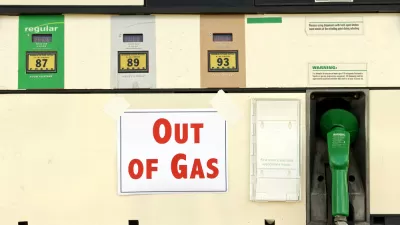Pennsylvania has the nation's highest state gas and diesel taxes, 51.4 cents per gallon and 65.1 cents per gallon, respectively. Both are scheduled to increase up to 10 cents on Jan 1. A bill has been introduced to halt all future fuel tax increases.
The November 2013 legislation, signed by former Republican Gov. Tom Corbett, resulted in one of the largest state gas taxes increases in history, predicted at the time to be up to 28-cents per gallon, yet it actually eliminated the state excise tax. The tax increase was based on the elimination of the inflationary cap on the oil company franchise tax.
"As a result, the gas tax has increased nearly 20 cents per gallon from 32.3 cents in 2013," reports Keith Goble, Land Line state legislative editor "Over the same time the diesel rate has increased about 26 cents from 39.2 cents."
On Jan. 1, 2017, an increase of as much as 10 cents is anticipated.
Enter Rep. Joseph Petrarca, D-Westmoreland, who introduced "HB 2248 which would cancel the statutorily required January increase, keeping the wholesale price level, effectively preventing future tax increases based on the formula."
The oil company franchise tax differs from other wholesale fuels taxes that are sales tax-based that have experienced large revenue decreases due to gas price drops, e.g. North Carolina, Kentucky. The franchise tax is "based on a gallon of fuel and is determined by by the Department of Revenue on an annual basis beginning on every January 1," according to the Pennsylvania Bulletin.
Petrarca acknowledged in a press release that gas prices were falling, but explained that "there's a limit to how far the prices can drop because of the amount of state and federal taxes imposed on each gallon of gas."
Gas prices are largely determined by the volatile market factors of supply and demand, not gas tax changes which occur seldomly, generally in small amounts, and need not even be reflected in pump prices. On the other hand, gas taxes are the single most important factor in determining how much state funding is available for state transportation infrastructure and programs.
Hat tip: AASHTO Daily Transportation Update
FULL STORY: Pennsylvania lawmaker wants to 'abolish' state's fuel tax rate increase

Planetizen Federal Action Tracker
A weekly monitor of how Trump’s orders and actions are impacting planners and planning in America.

Congressman Proposes Bill to Rename DC Metro “Trump Train”
The Make Autorail Great Again Act would withhold federal funding to the system until the Washington Metropolitan Area Transit Authority (WMATA), rebrands as the Washington Metropolitan Authority for Greater Access (WMAGA).

The Simple Legislative Tool Transforming Vacant Downtowns
In California, Michigan and Georgia, an easy win is bringing dollars — and delight — back to city centers.

The States Losing Rural Delivery Rooms at an Alarming Pace
In some states, as few as 9% of rural hospitals still deliver babies. As a result, rising pre-term births, no adequate pre-term care and "harrowing" close calls are a growing reality.

The Small South Asian Republic Going all in on EVs
Thanks to one simple policy change less than five years ago, 65% of new cars in this Himalayan country are now electric.

DC Backpedals on Bike Lane Protection, Swaps Barriers for Paint
Citing aesthetic concerns, the city is removing the concrete barriers and flexposts that once separated Arizona Avenue cyclists from motor vehicles.
Urban Design for Planners 1: Software Tools
This six-course series explores essential urban design concepts using open source software and equips planners with the tools they need to participate fully in the urban design process.
Planning for Universal Design
Learn the tools for implementing Universal Design in planning regulations.
Smith Gee Studio
City of Charlotte
City of Camden Redevelopment Agency
City of Astoria
Transportation Research & Education Center (TREC) at Portland State University
US High Speed Rail Association
City of Camden Redevelopment Agency
Municipality of Princeton (NJ)




























